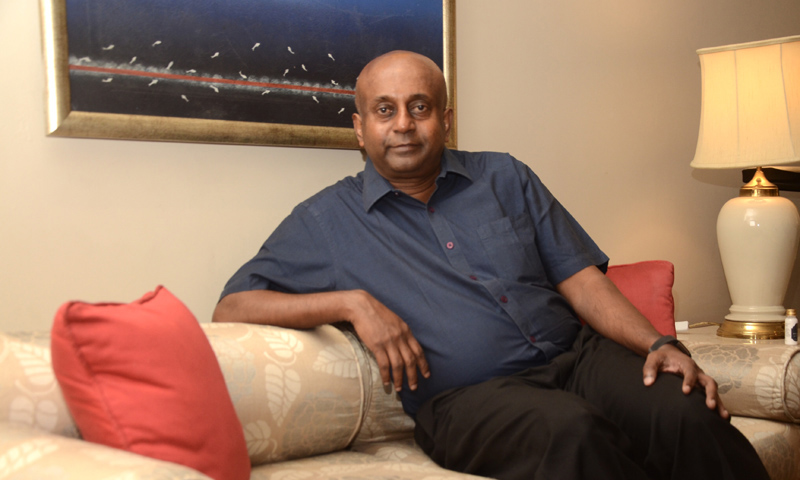 Vinod Daniel
Vinod Daniel Covid has had a huge negative impact on museums: Vinod Daniel
Vinod Daniel Member, Board, International Council of Museums (ICOM) and Chairman, AusHeritage, is busy these days with the upcoming 2-Day Global Summit on ‘Reimagining Museums in India’ which will start from February 15. IBNS-TWF correspondent Supriyo Hazra caught up with him to discuss his project and the challenges museums are facing amid the pandemic. Excerpts:
In the period of COVID-19 crisis, are you seeing any improvement in bringing back people to museums?
As with all other sectors, Covid has had a huge negative impact on the museum sector. The biggest impact has been on museums that depended on a large part of income through visitors. The largely-government-funded museums possibly managed much better financially.
However, the non-government museums probably were the ones that worked hard on exploring other avenues to reach out to visitors especially through online. This will be extremely beneficial in future.
Now as governments ease restrictions, people are slowly coming back to museums. However, the audiences are primarily local and not international.
What are your expectations from the summit?
It is good to see the Government of India becoming more interested and enthusiastic about museums. I am also delighted that some of the world’s best museum leaders are participating in this ‘Reimagining Museums in India Summit’. This would be an important landmark as museums here reinvigorate and become an integral part of emerging India.
Why is this summit so crucial at this moment?
The museum sector being such a specialised sector, this summit would provide an avenue for sharing global best practices in museum and collection aspects and adapting them for India. Any museum renewal is a 10-15-year process and this summit would hopefully lead to a road map for such an exercise.
What are your views on the way forward for Indian museums?
Whatever Indian museums do needs to be holistic. including:
Having a clear plan for the physical renewal of museum spaces
Developing necessary trained human resources to service the specialised needs of museums. This may need development of several university level academic programs across India.
Develop a management structure that would provide avenues for creativity as well as financial sustainability
.jpg)
Be audience focussed especially borrowing from skills sets of India’s strong IT and Entertainment sectors
Provide more autonomy for museums.
What can India adopt from museums overseas, especially in this period of COVID-19?
An audience focussed exhibition and public engagement plan is a strength of western museums which Indian can learn from. In today’s strong online push for Museums, India can be a leader for the rest of the world especially utilising its strong IT and entertainment industry skills.
How do you think museums should change themselves further in future to make themselves cultural hubs? Will it draw more crowds?
Museums need to compete with entertainment centers for audiences. Museums have excellent collections in their custody, how well they research and communicate and educate audiences will define how strongly audiences will embrace them.
What measures can be taken to get back stolen items from museums?
Some excellent work is being done both by the Government as well as individuals. Two aspects that can assist going forward:
Get more documentation that can assist museums overseas in returning contested objects (some objects have good documentation while others need to be strengthened)
Whatever objects are both in museums and protected monuments as well as outside needs to be documented quickly so they are not illegally exported.
How can India develop more museums? Can we emulate any country's experience in this area? What is the future of Indian museums?
China on an average has been building 100-150 new museums yearly for the past 5-6 years. For the Indian Government, it would be good to have the first phase as strengthening the current 1,000 plus museums (some may need new buildings) and then maybe a decade later focussing on new ones. Of course, private museums such as MAP in Bangalore can come up any time.
Your experience of working in the developing world, notably in the Pacific Islands and the Middle East?
In the Pacific, museums are often home for both the tangible and intangible. They become community spaces for performances as well as storage and display spaces for objects, They are often called Cultural Centres and not just Museums.
In the Middle East, there is a strong interest in emulating the western model of museums specially to support tourism. The Abu Dhabi Louvre and the massive museum rebuilding movement in Saudi Arabia are just a few examples.
How about future museums becoming a place for recreation, entertainment? The role of new technology. And in these times of Covid-19, how can virtual tours of museums help?
As I had highlighted above, India can become a world leader in using its strong IT and entertainment skills and building more online mechanisms and contents for museums. It is also important that revenue generation happens in this domain to keep museums financially sustainable. With no physical boundaries for audiences, ten maybe a hundred times the number of current audiences can visit museums in future.
Support Our Journalism
We cannot do without you.. your contribution supports unbiased journalism
IBNS is not driven by any ism- not wokeism, not racism, not skewed secularism, not hyper right-wing or left liberal ideals, nor by any hardline religious beliefs or hyper nationalism. We want to serve you good old objective news, as they are. We do not judge or preach. We let people decide for themselves. We only try to present factual and well-sourced news.







